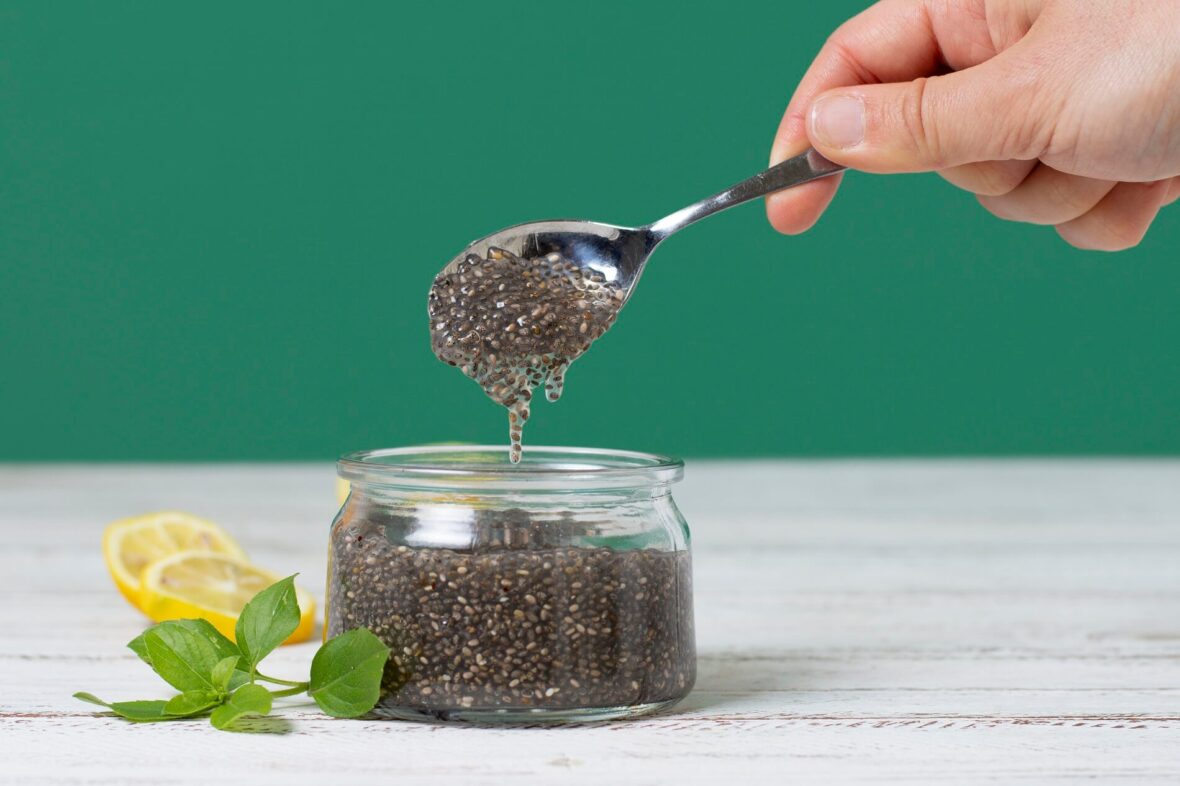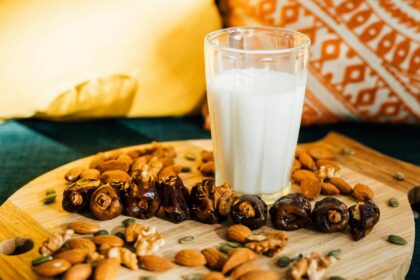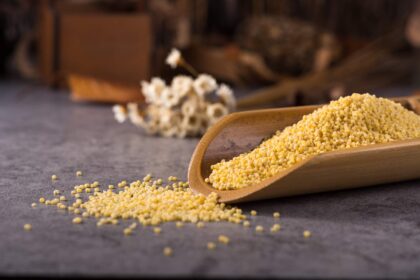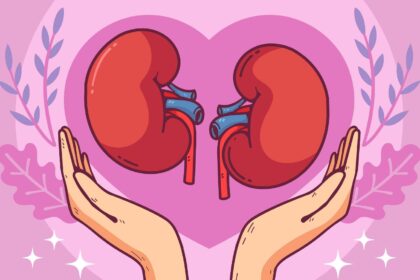Chia seeds have become increasingly popular as a superfood lately, due to their outstanding nutritional content and a wide range of health advantages. These small seeds, originating from the Salvia hispanica plant, have been eaten for a long time by ancient societies such as the Aztecs and Mayans for their ability to provide energy.
This article will explore into the top 10 health benefits of consuming chia seeds, examine possible dangers and safety measures, and provide tips for adding them to your diet, and wrap up with a summary of their benefits.
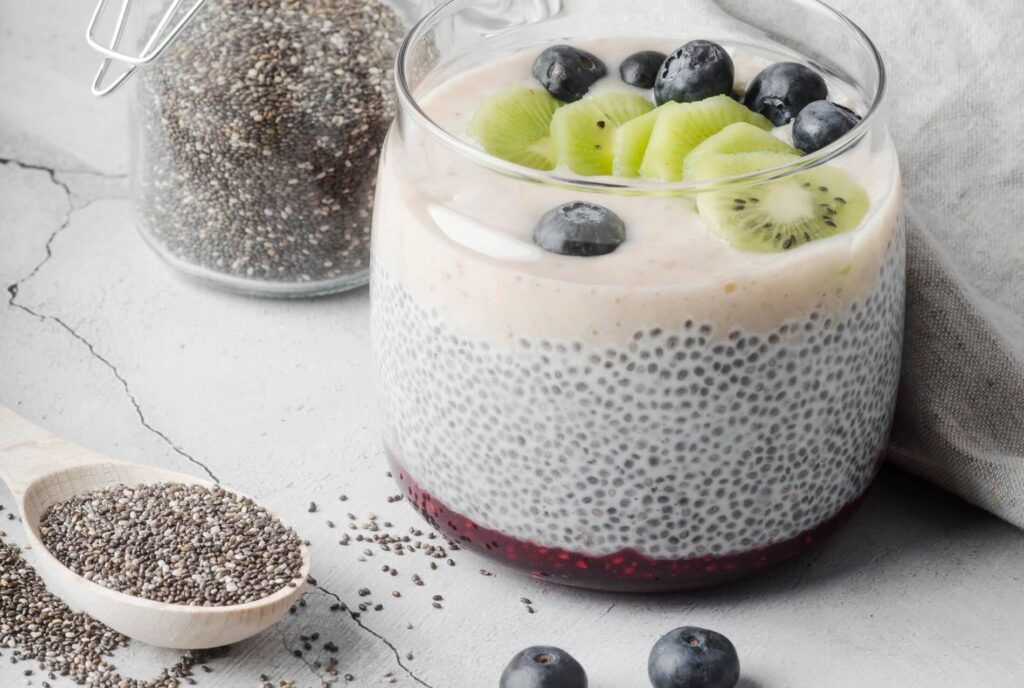
Overview of Chia Seeds:
Chia seeds, tiny black or white seeds, contain a wealth of crucial vitamins and minerals. They provide a good amount of dietary fiber, protein, and healthy fats, along with an array of smaller nutrients like calcium, magnesium, and phosphorus. These seeds are incredibly flexible and can be included in numerous recipes, making them an easy incorporation for various meal plans. Now, let’s explore the leading health advantages of incorporating chia seeds into your diet.
Top 10 Health Benefits of Consuming Chia Seeds-
1. Rich in Nutrients:
Chia seeds are packed with nutrients, offering a high nutrient content with a low calorie count. A mere ounce (roughly 28 grams) of chia seeds supplies: Fiber: 11 grams, Protein: 4 grams, Fat: 9 grams, with 5 grams being omega-3 fatty acids, Calcium: 18% of the RDI (Recommended Daily Intake), Magnesium: 30% of the RDI, Phosphorus: 27% of the RDI.
This quality positions chia seeds as an excellent component for any diet aimed at increasing nutrient consumption, promoting general well-being, and preventing deficiencies in essential nutrients.
2. Aids in Weight Loss:
The high fiber and protein content in chia seeds helps with weight loss by creating a feeling of fullness and reducing the overall calorie intake. Consuming chia seeds causes them to expand in the stomach, resulting in a prolonged feeling of satiety and reducing the likelihood of overeating. Additionally, the protein in chia seeds helps maintain stable blood sugar levels and suppresses cravings for unhealthy snacks.

3. Supports Digestive Health:
Chia seeds are a great way to get dietary fiber, crucial for keeping your digestive system in good shape. The soluble fiber in chia seeds soaks up water, creating a gel-like consistency that helps with the formation of stool and encourages consistent bowel movements. This can assist in avoiding constipation, lessen the signs of irritable bowel syndrome (IBS), and boost the health of your gut.
4. Supports Heart Health:
Chia seeds are rich in omega-3 fatty acids, particularly alpha-linolenic acid (ALA), known for its beneficial impact on cardiovascular health. These omega-3s can assist in reducing inflammation, lowering blood pressure, and decreasing the risk of heart disease. Incorporating chia seeds into your diet can enhance cardiovascular health by improving cholesterol levels and reducing the risk of atherosclerosis (the stiffening of arteries). Due to their high fiber and omega-3 content, consuming chia seeds can reduce the risk of heart disease. The soluble fiber, which is predominant in chia seeds, can aid in reducing both total and LDL (bad) cholesterol levels in the blood, thus decreasing the risk of heart disease.
5. High in Antioxidants:
Chia seeds are packed with antioxidants, which assist in combating free radicals within the body. Free radicals can lead to oxidative stress, resulting in harm to cells and playing a role in aging and illnesses such as cancer. By eating foods high in antioxidants, such as chia seeds, you can shield your body against these negative impacts and promote overall health and energy. Antioxidants not only safeguard the delicate fats in chia seeds from becoming rancid but also improve human health by neutralizing reactive molecules called free radicals, which can harm cell components if they accumulate in the body.
6. Stabilizes Blood Sugar Levels:
The significant amount of fiber in chia seeds can assist in maintaining stable blood sugar levels by slowing the process of sugar being absorbed into the blood. This can be especially advantageous for people with type 2 diabetes or those who are at risk of developing the condition. Eating chia seeds regularly could lead to better insulin sensitivity, lower blood sugar levels after eating, and improved management of blood sugar.
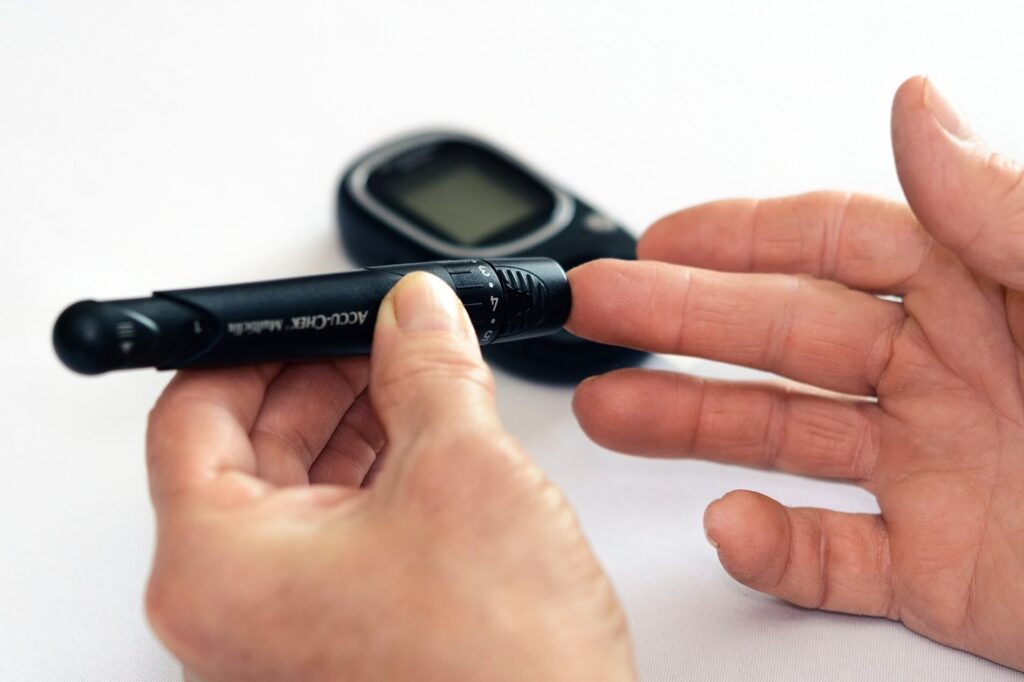
7. Boosts Energy and Endurance:
Chia seeds have been traditionally utilized by ancient fighters for their long-lasting energy benefits. Recent research indicates that chia seeds can improve athletic performance in a way that’s comparable to sports beverages, yet without the extra sugars. Their optimal mix of protein, fat, and fiber offers a consistent energy supply, making them an excellent choice for a pre-workout snack or a supplement to your meals for an energy increase.
8. Enhances Brain Function:
Chia seeds contain omega-3 fatty acids, which are also good for the brain. These essential fatty acids play a crucial role in keeping brain cells in good shape and working properly. They can boost brain function, enhance memory, and lower the chance of developing brain-related conditions like Alzheimer’s and Parkinson’s. Adding chia seeds to your meals can aid in maintaining brain health and enhance mental sharpness and concentration.
9. Supports Bone Health:
Chia seeds are a great source of various essential nutrients crucial for the health of our bones, such as calcium, magnesium, and phosphorus. To put it into perspective, an ounce of chia seeds packs more calcium than a glass of milk, making them an ideal option for those aiming to bolster their bone health. These nutrients collaborate to keep bones dense and strong, lowering the chances of developing osteoporosis and bone fractures.
Chia seeds are rich in numerous nutrients vital for bone health, including calcium, phosphorus & magnesium.
Numerous studies that observe people’s diets have indicated that adequate intake of these nutrients is key to preserving optimal bone mineral density, which is a measure of bone strength. Moreover, the ALA found in chia seeds might also contribute to bone health. Studies that have tracked people’s diets have suggested that including this nutrient in one’s diet could lead to higher bone mineral density.
10. Improves Skin Health:
Chia seeds, rich in antioxidants, omega-3 fatty acids, and various other nutrients, can also provide advantages for your skin. Antioxidants shield the skin from harm inflicted by free radicals, whereas omega-3s can lower inflammation and maintain skin moisture. Consuming chia seeds frequently might aid in enhancing skin firmness, diminishing the look of small lines and wrinkles, and fostering a glowing, healthy skin tone.

Addition benefits of taking chia seeds:
– Omega-3 fatty acids
Chia seeds contain a high amount of omega-3 fatty acids known for their anti-inflammatory effects. These properties could potentially lower blood pressure and triglyceride levels, and decrease the chances of experiencing a heart attack or stroke. Additionally, omega-3 fatty acids might assist in managing eczema, lupus, and rheumatoid arthritis. They could also offer protective benefits against cancer and various other health issues.
– Complete protein
According to Harvard Health, chia seeds are a full-fledged protein source, packing in all nine essential amino acids that the body cannot produce on its own. These amino acids are crucial for generating energy and supporting the immune system in the body. Animal products such as dairy, eggs, fish, meat, and poultry are also complete proteins, whereas plant-based sources like buckwheat, edamame, and quinoa fit into this category as well. With 5 grams of protein per serving, chia seeds can easily be incorporated into nearly any dish to boost its protein content.
– Good source of fiber
Chia seeds offer a significant amount of fiber, which might assist in lowering cholesterol, enhancing gut health, and keeping blood sugar stable. Mixing chia seeds with water can make you feel satiated for a longer period and help alleviate constipation. The high fiber content is also advantageous for gut health as it nourishes our beneficial gut bacteria.
– Minerals
Chia seeds also contain essential minerals like calcium, iron, magnesium, and zinc. Calcium and magnesium are crucial for keeping bones strong, while zinc is vital for the division and growth of cells. Additionally, it plays a key role in bolstering the body’s immune system. Rather than opting for supplements or vitamins, consider adding a sprinkle or two of chia seeds to your next meal.
– Low in Calories
Chia seeds can provide a light, low-calorie crunch to any dish or nibble. Indeed, a single ounce (28 grams or two tablespoons) of chia seeds has a mere 138 calories. Therefore, since they’re also rich in fiber, incorporating chia seeds into your low-calorie snack or meal can assist in keeping you satisfied for an extended period, all while adhering to a low-calorie eating plan.
– Easy to incorporate into your diet:
Chia seeds are incredibly simple to include in your meals. They have a mild flavor, allowing you to mix them into almost anything. You don’t have to grind, cook, or prepare them in any way, making them a versatile ingredient in recipes. They can be consumed raw, soaked in liquid, or added to oatmeal, puddings, smoothies, and baked items. You can also sprinkle them over cereal, yogurt, vegetables, or rice dishes. Additionally, they are great for homemade fritters as a glue.
Due to their capacity to absorb water and fat, they can be used to thicken sauces and serve as a substitute for eggs. They can also be combined with water to create a gel. The seeds seem to be generally well-tolerated. However, if you’re not accustomed to high fiber diets, you may experience gastrointestinal issues such as bloating or diarrhea if you consume too many seeds at once.
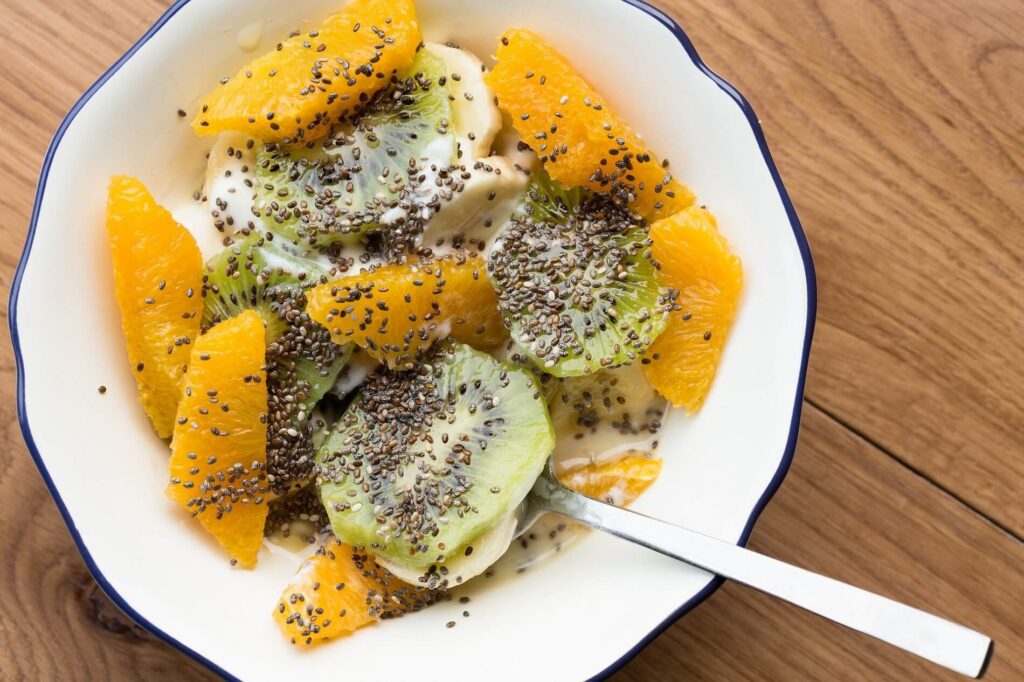
Risks and Precautions:
Chia seeds provide a variety of health advantages, but it’s crucial to be aware of the potential dangers and necessary steps to take:
- Allergic Reactions: Some people might have an allergic response to chia seeds. This can manifest as itching, swelling, and shortness of breath. If you notice any of these signs following chia seed consumption, it’s essential to seek medical help right away.
- Digestive Problems: The high fiber levels in chia seeds can cause stomach discomfort, including bloating, gas, and loose stools, when consumed in excess. It’s advisable to begin with small portions and slowly increase your consumption to give your digestive system time to adapt.
- Drug Interactions: Chia seeds might interfere with certain drugs, especially those that thin the blood, due to their significant omega-3 levels. If you’re on any medications, it’s wise to talk to your doctor before incorporating chia seeds into your diet.

Points to Consider:
When incorporating chia seeds into your diet, keep the following points in mind:
- Soak them for better digestion: To improve how easily your body can digest and absorb the nutrients from chia seeds, consider soaking them in water or another liquid before eating.
- Ensure you’re drinking enough water: Chia seeds have a high water absorption capacity, so it’s crucial to stay hydrated to avoid feeling dehydrated and experiencing stomach issues.
- Eat them in moderation: Although chia seeds are packed with nutrients, it’s wise to eat them in controlled amounts. Try to have around 1-2 tablespoons daily.
- Explore their use in different foods: Chia seeds are incredibly versatile and can be mixed into various recipes like smoothies, yogurt, oatmeal, salads, and baked items. Try out different recipes to discover your favorite combinations.
Conclusion:
Chia seeds are a potent superfood that provide a wide range of health advantages, including aiding in digestion and weight management, boosting cardiovascular health, and improving cognitive function. Their high nutrient content positions them as an excellent component of any diet. Nonetheless, it’s crucial to be aware of possible side effects and eat them in controlled amounts. By adding chia seeds to your everyday regimen, you can reap their numerous health rewards and bolster your general health.
FAQ:
Question: How do chia seeds help in weight loss?
Answer: Chia seeds support weight reduction through:
- High Protein: Curbs hunger and stops excessive consumption.
- Rich Fiber: Swells in the stomach, creating a sensation of satiety.
- Blood Sugar Control: Aids in avoiding rapid increases and decreases in blood sugar, lessening the desire for sweets.
Question: Can chia seeds help lower blood pressure?
Answer: Yes, Chia seeds can assist in reducing blood pressure because they contain a significant amount of omega-3 fatty acids, which decrease inflammation and enhance cardiovascular health. Additionally, the fiber present in chia seeds aids in controlling blood pressure by supporting the proper functioning of blood vessels.
Question: Are chia seeds beneficial for digestive health?
Answer: Indeed, Chia seeds contain a high amount of soluble fiber, which assists in the digestive process by creating a gel-like material that facilitates the movement of food through the digestive system, encouraging consistent bowel movements and avoiding constipation. Additionally, they contribute to maintaining a healthy balance of gut bacteria.
Question: How do chia seeds benefit skin health?
Answer: Chia seeds improve the condition of the skin by containing a lot of antioxidants that defend against the harmful effects of free radicals, and by providing omega-3 fatty acids that lower inflammation and maintain skin moisture. Consuming them regularly can enhance the skin’s flexibility and lessen the look of wrinkles.
Question: Can chia seeds improve brain function?
Answer: Indeed, the omega-3 fatty acids found in chia seeds, especially alpha-linolenic acid (ALA), are crucial for maintaining brain health. They aid in cognitive performance, enhance memory, and lower the chance of neurodegenerative conditions such as Alzheimer’s and Parkinson’s.
Question: How do chia seeds stabilize blood sugar levels?
Answer: The water-soluble fiber found in chia seeds helps to regulate the rate at which sugar is absorbed into the blood, avoiding sudden increases in blood sugar levels and aiding in improved management of blood sugar. This is especially helpful for people with type 2 diabetes or those who might be at risk of getting the disease.
Question: What is the recommended daily intake of chia seeds?
Answer: The suggested daily allowance of chia seeds ranges from 1-2 tablespoons (15-30 grams). This quantity offers a substantial increase in nutritional value without leading to stomach issues. Begin with smaller portions and slowly raise your consumption to give your system time to adapt.
Reference Used:
https://www.healthline.com/nutrition/11-proven-health-benefits-of-chia-seeds
https://www.forbes.com/health/nutrition/chia-seeds-benefits/


